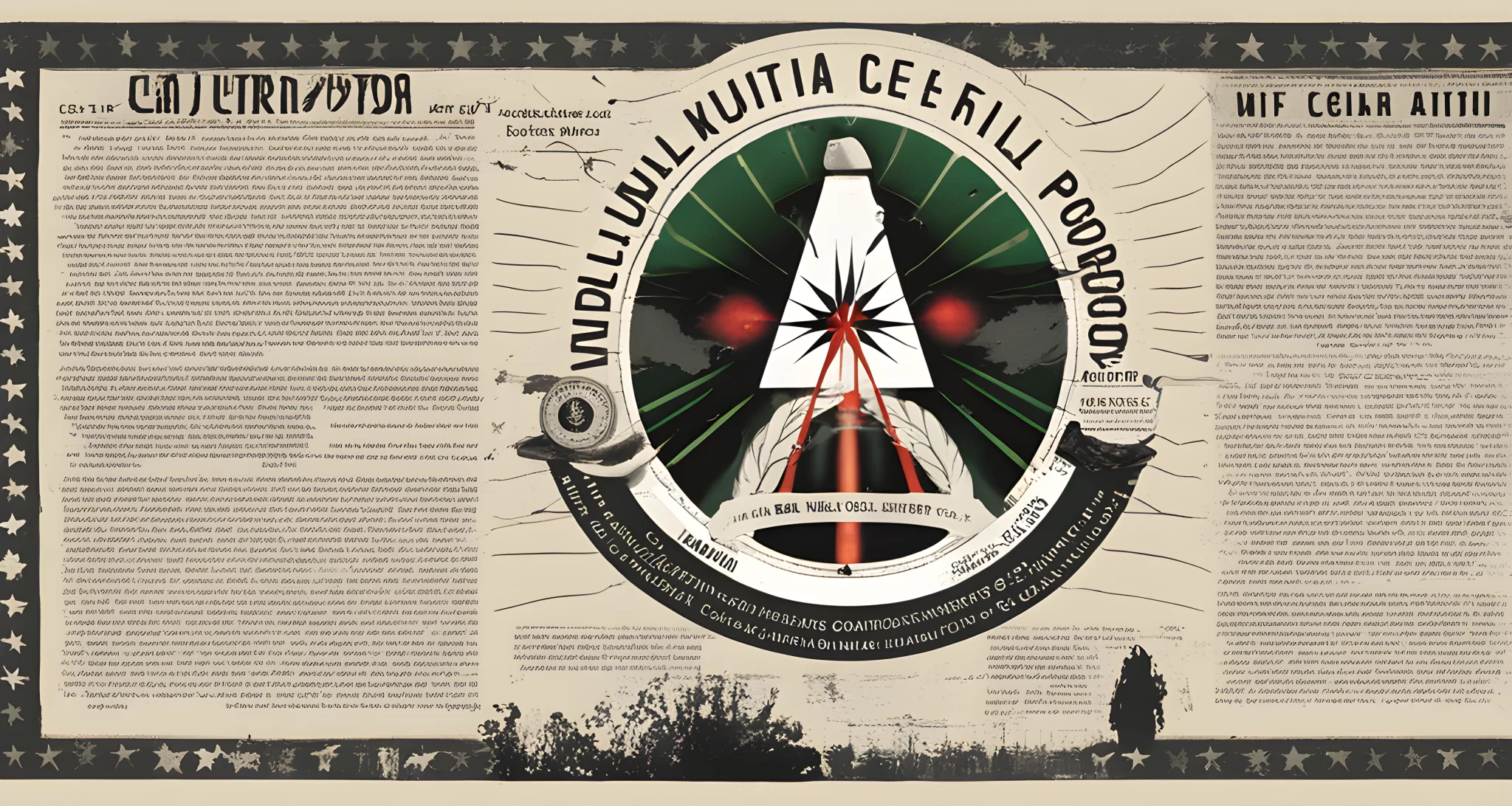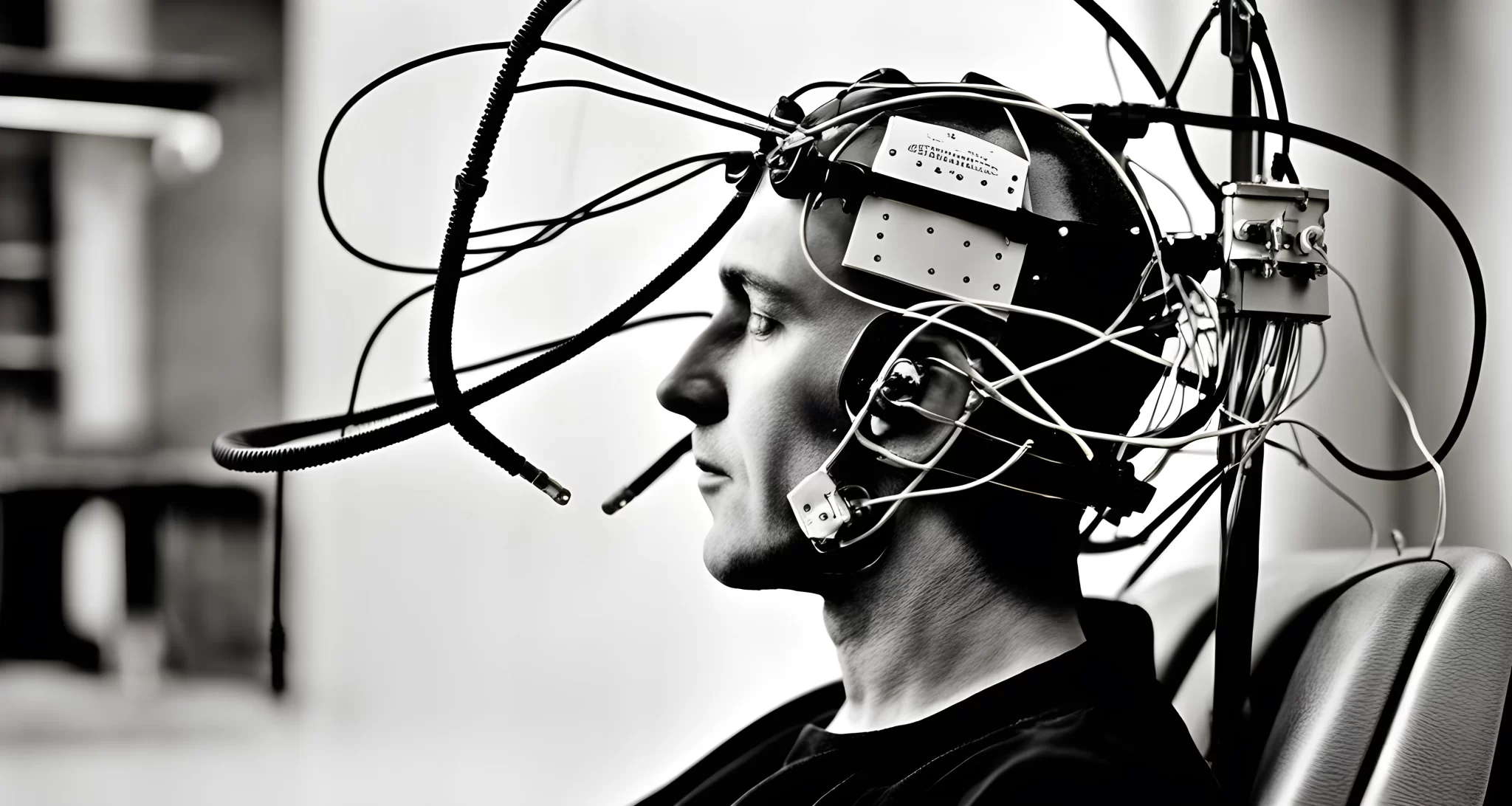Introduction
Project MKUltra, the CIA’s mind control program, was initiated in the early 1950s during the Cold War era. The program aimed to develop methods for controlling human behavior in response to rumors of mind control techniques used by enemy countries. It was shrouded in secrecy and controversy, with the ultimate goal of countering the perceived threat posed by the use of mind control techniques by the Soviet Union, China, and North Korea during the Korean War.
The origins of MKUltra can be traced back to the height of the Cold War World Domination Secret Society, when the CIA sought to develop techniques for controlling the minds of enemy captives and foreign leaders. This included plans to drug Fidel Castro, the President of Cuba. The program’s secretive nature and unethical experiments have led to public outcry and conspiracy theories surrounding its true purpose and extent.
In this article, we will delve into the origins, experiments, ethical concerns, legacy, and media portrayal of MKUltra. We will explore how this controversial program has left a lasting impact on society and continue to be a subject of public interest and debate. Join us as we uncover the truth behind one of the most notorious government programs in history.

The Origins of MK-Ultra
The origins of MK-Ultra can be traced back to the aftermath of World War II, when the United States government became increasingly interested in the potential applications of mind control and manipulation. The program was officially authorized in 1953 by then-CIA director Allen Dulles, who was fascinated by the idea of harnessing the power of the human mind for covert operations.
Experiments and Methods
- Project MKUltra involved a wide range of experiments and methods, including:
– The surreptitious administration of drugs and other chemicals
– Hypnosis
– Sensory deprivation
– Electroshock therapy
Ethical Concerns and Public Outcry
The program aimed to alter brain function and manipulate individual mental states in an attempt to control human behavior. Many of these experiments were conducted without the knowledge or consent of the subjects, who were often unwitting participants. The use of these methods and the lack of informed consent have raised significant ethical concerns and questions about the potential harm inflicted on the subjects.
Who oversees the system raises important questions about the ethical and moral implications of government-sponsored mind control programs such as MK-Ultra.
The legacy of MK-Ultra continues to spark public outcry and ethical debates about the boundaries of government experimentation and the treatment of human subjects in research.
In conclusion, understanding the origins of MK-Ultra sheds light on a dark chapter in American history and raises important questions about government accountability and ethical research practices.

Experiments and Methods
The MKUltra program, initiated by the CIA in the 1950s, involved a wide range of experiments and methods aimed at understanding and controlling human behavior. The program encompassed various subprojects, each focusing on different aspects of mind control and behavior modification.
LSD and Drug Testing
- One of the most well-known aspects of MKUltra was the extensive use of LSD and other psychoactive drugs in experiments.
- The CIA sought to understand the potential for these drugs to influence subjects’ behavior and extract information through interrogation.
- This led to widespread drug testing on unwitting individuals, including civilians, prisoners, and military personnel.
Hypnosis and Psychic Driving
- Another method explored under MKUltra was the use of hypnosis and psychic driving to alter subjects’ thought patterns and behaviors.
- This involved repetitive audio messages intended to influence the subconscious mind, leading to potential changes in behavior and personality.
Sensory Deprivation and Torture
- MKUltra also delved into sensory deprivation techniques, including isolation and extreme forms of torture.
- These methods aimed to break down an individual’s psyche and resistance to suggestion, allowing for greater control over their thoughts and actions.
Legacy and Ethical Concerns
The revelation of these experiments has raised significant ethical concerns, prompting investigations that shed light on the scope and details of the program. The lack of informed consent and uncontrolled nature of the experiments has led to lasting implications about the legacy of MKUltra. The public outcry surrounding these ethical violations has sparked ongoing questions about the program’s impact on individuals and society as a whole.
For related information on controversial technology experiments, you can read about Weather control technology.

Ethical Concerns and Public Outcry
The legacy of MKUltra is characterized by ethical concerns and questions about the potential harm inflicted on the subjects. The program’s use of various methods, including the administration of drugs and other chemicals, hypnosis, sensory deprivation, and electroshock therapy, without the knowledge or consent of the subjects, has raised significant ethical concerns.
- The revelation of the program has led to ongoing discussions and debates about the ethical implications of MKUltra and its lasting legacy on the field of research and human rights.
- There has been a significant public outcry regarding the unethical nature of the experiments conducted under MKUltra.
- The program’s use of mind control techniques and manipulation without the subjects’ consent has caused widespread concern among the public and human rights advocates.
The revelation of MKUltra’s methods has also raised questions about the potential influence of media portrayal and conspiracy theories on public perception. Some have suggested that media portrayal may have played a role in shaping public opinion about the program Uncovering Media Messages. Additionally, various conspiracy theories have emerged surrounding MKUltra, contributing to public distrust of government-sponsored research programs.
Overall, ethical concerns and public outcry surrounding MKUltra have sparked important discussions about the limits of research ethics and the protection of human rights. The legacy of MKUltra serves as a reminder of the importance of ethical oversight in research and the need to uphold the principles of informed consent and respect for human dignity.

Legacy of MK-Ultra
The legacy of Project MKUltra is one of controversy and speculation, fueled by media portrayal and conspiracy theories. The revelation of the program and its unethical experiments has left a lasting impact on individuals and society, leading to widespread public outcry and ethical concerns.
Media Portrayal and Conspiracy Theories
- Project MKUltra has been the subject of media portrayal and conspiracy theories, further adding to its controversial legacy.
- The media portrayal of MKUltra has contributed to its controversial reputation and raised questions about the ethical considerations of conducting such research in secret and without the knowledge or consent of the subjects.
Impact on Individuals and Society
- The unethical experiments conducted under MKUltra have led to speculation and conspiracy theories about the true extent of the program and its potential impact on individuals and society.
- The revelation of the program has raised serious questions about the ethical boundaries of government-sponsored research and experimentation.
The legacy of MKUltra serves as a reminder of the ethical considerations that must be taken into account when conducting research, particularly in sensitive areas such as mind control and behavioral manipulation. The program’s impact on individuals and society, as well as the media portrayal and conspiracy theories surrounding it, continue to be topics of discussion and debate.
For more insights into controversial government programs, including those related to mind control, check out our article on Pentagon’s UFO Insights for further intriguing information.

Media Portrayal and Conspiracy Theories
The MKUltra program has been the subject of various media portrayals and conspiracy theories, adding to its controversial legacy. Here are some key points to consider:
- Portrayal in Popular Culture: The MKUltra program has been depicted in numerous books, movies, and television shows, often sensationalizing the CIA’s experiments and their potential impact on society.
- Conspiracy Theories: The secretive nature of the program has fueled conspiracy theories about its true objectives and the extent of its influence. Some theories suggest that MKUltra techniques are still being used by government agencies or other organizations.
- Public Awareness: The revelation of MKUltra and its unethical experiments sparked public awareness and skepticism about government involvement in mind control and psychological manipulation.
- Ongoing Debates: The legacy of MKUltra continues to be a topic of debate, with some questioning the ethical boundaries of government research and experimentation.
For more information on conspiracy theories related to government involvement, check out Revealing the Facts.
As media portrayals and conspiracy theories continue to shape public perception, the controversy surrounding MKUltra underscores the importance of ethical considerations in scientific research and government operations.
FAQ
What was project mkultra?
Project mkultra was a secretive and controversial mind control research program conducted by the united states central intelligence agency (cia) from the early 1950s to the late 1960s.
Why was the mkultra program initiated?
The program was initiated in response to rumors of mind control techniques used by the soviet union, china, and north korea on u.s. prisoners of war during the korean war. the cia sought to develop its own methods for controlling the minds of enemy captives and foreign leaders.
What methods were used in the mkultra program?
The mkultra program involved the use of a wide range of substances, including lsd, hypnosis, sensory deprivation, and electroshock therapy, in an attempt to alter brain function and manipulate individual mental states.
What ethical concerns have been raised about mkultra?
The experiments were often conducted without the knowledge or consent of the subjects, raising significant ethical concerns and questions about the potential harm inflicted on the subjects.
